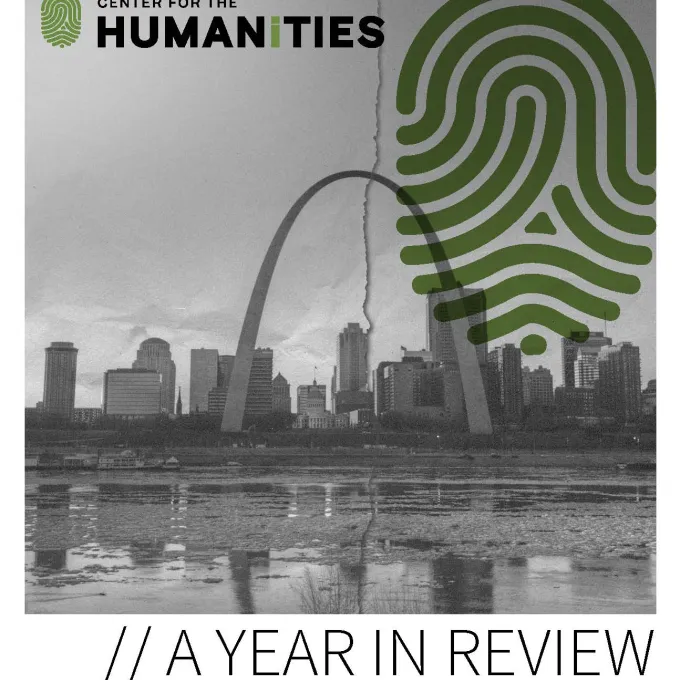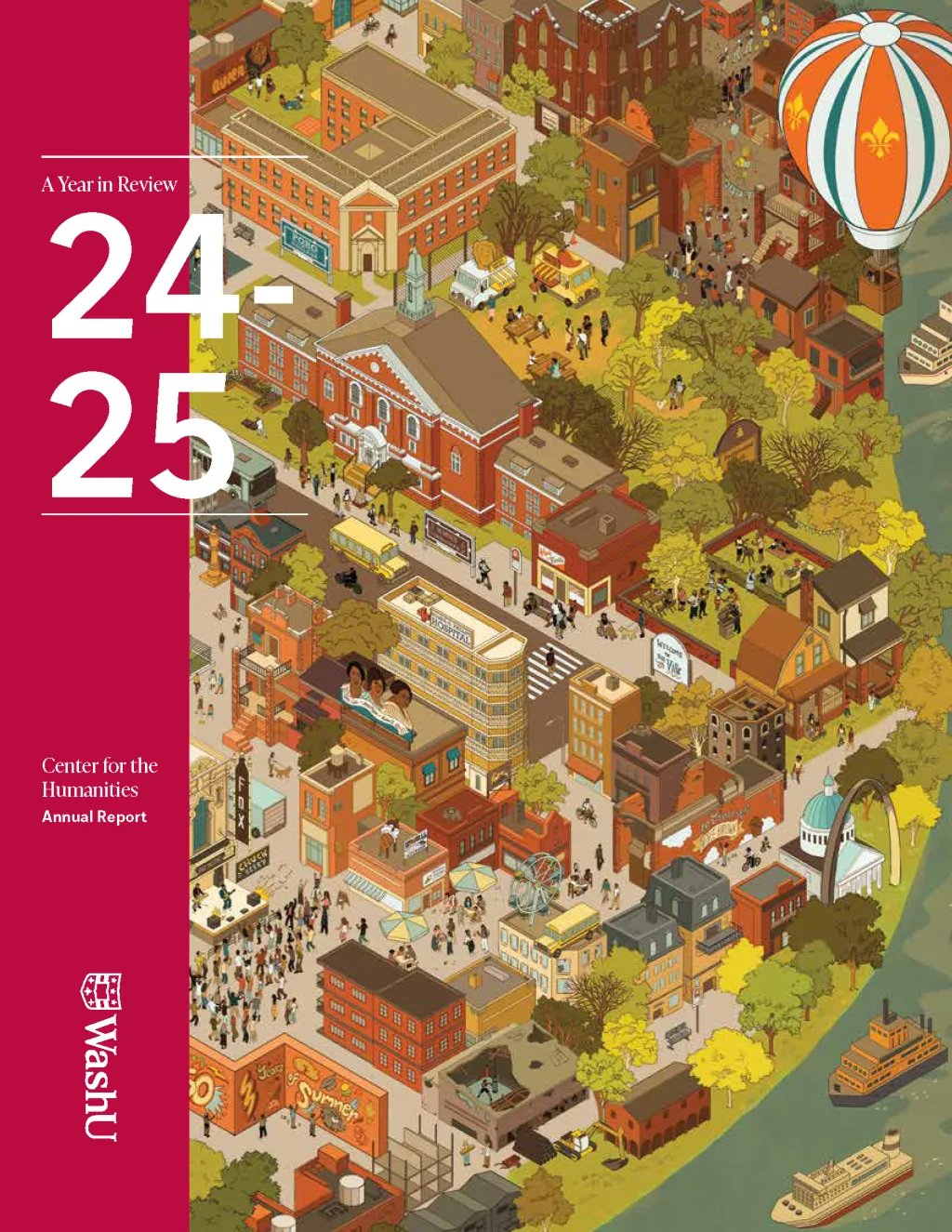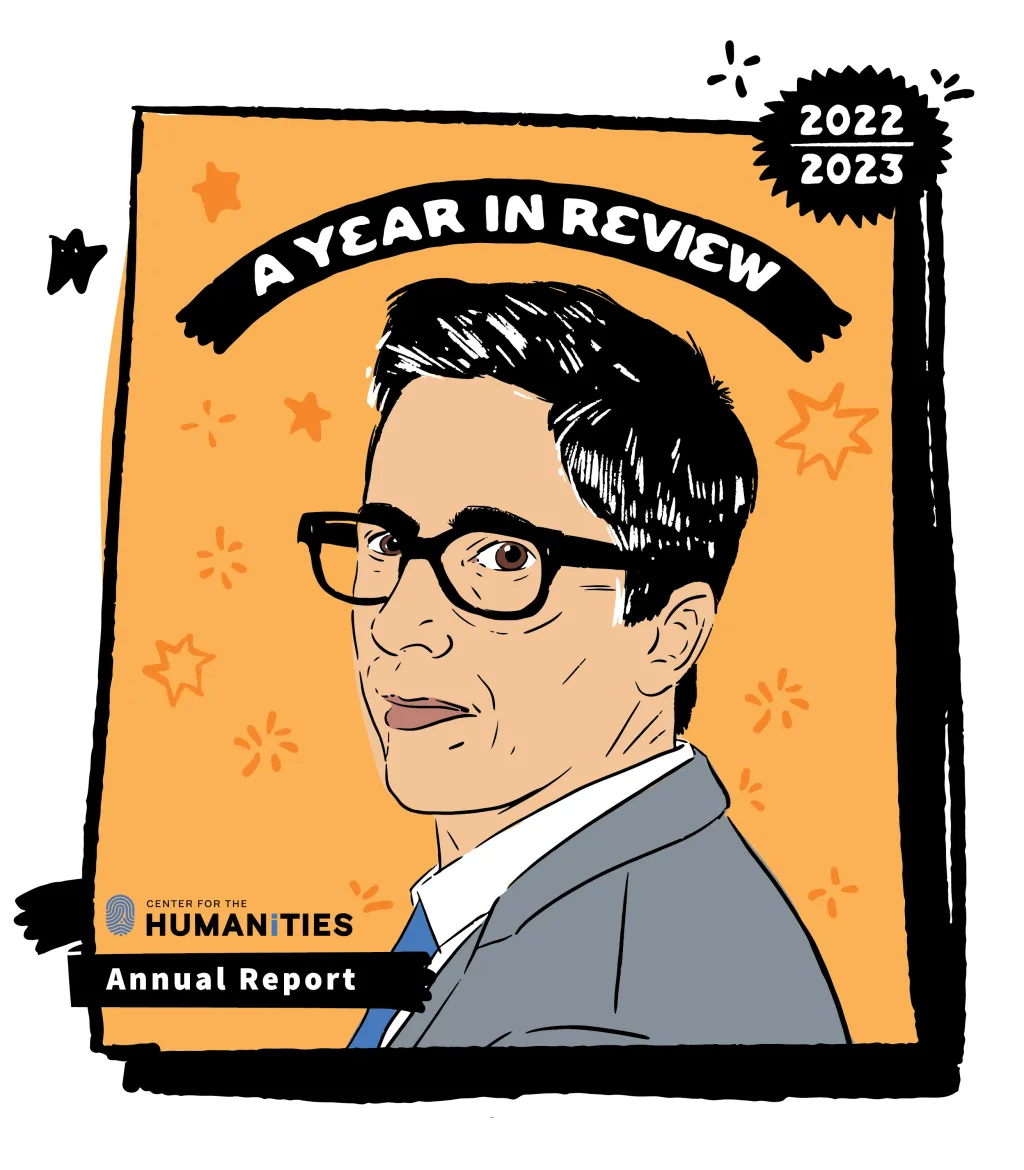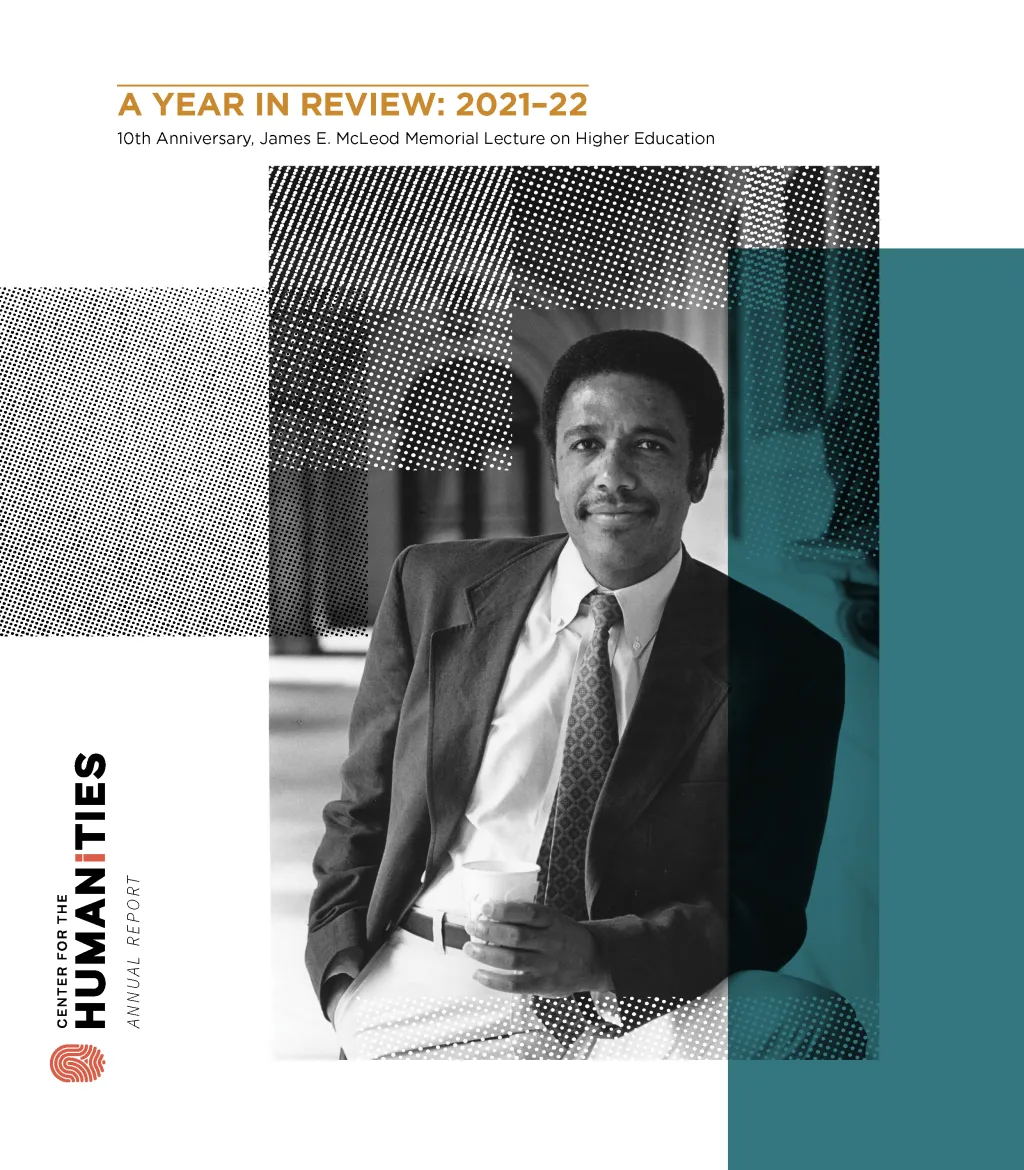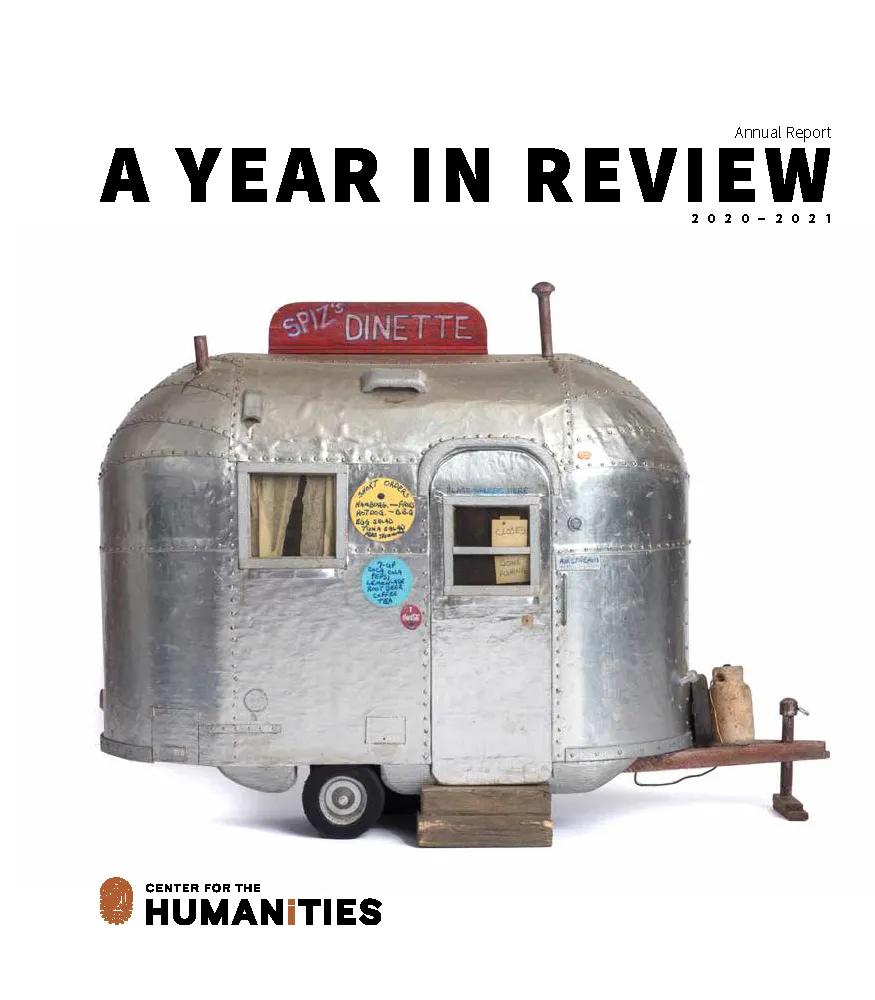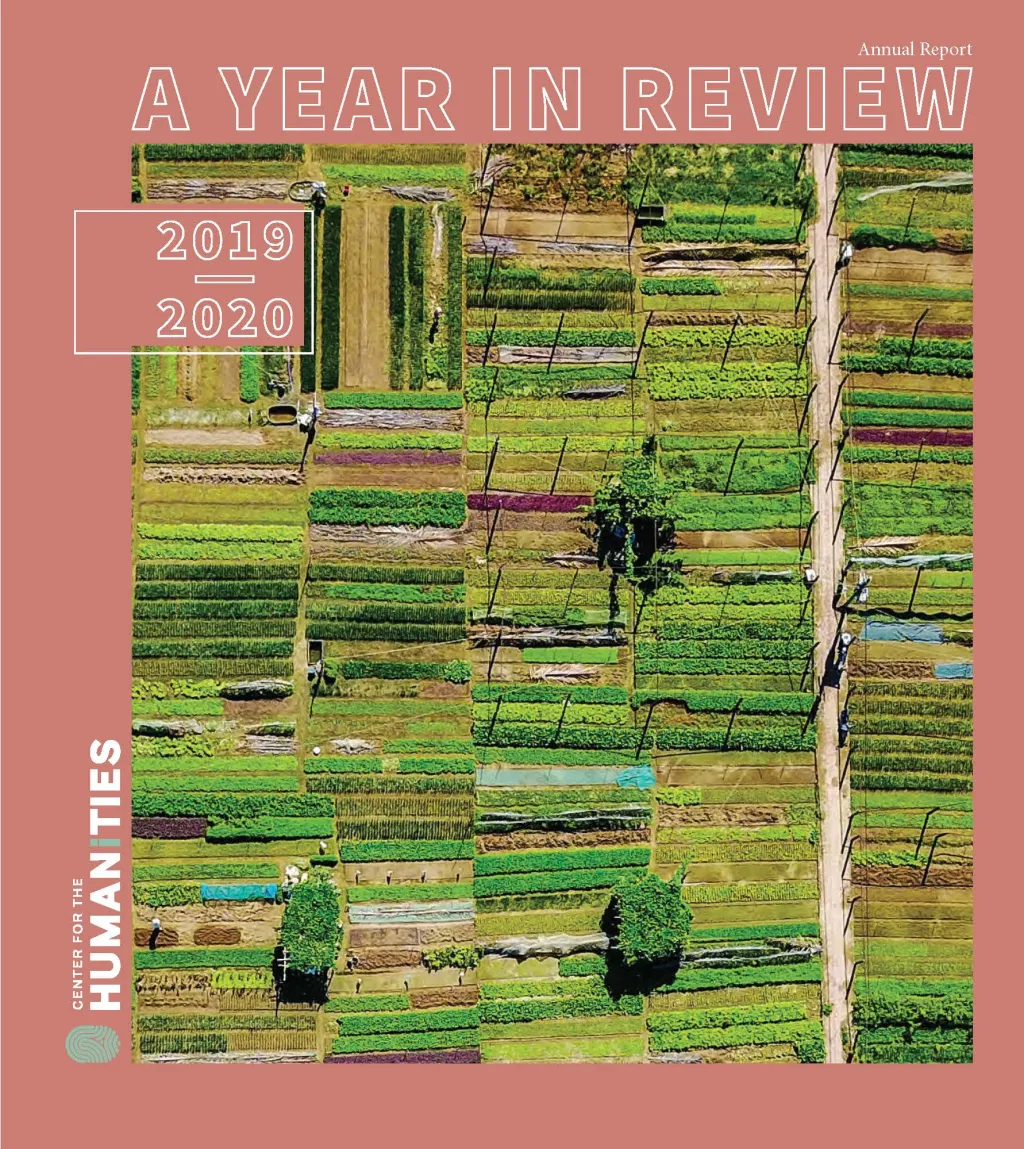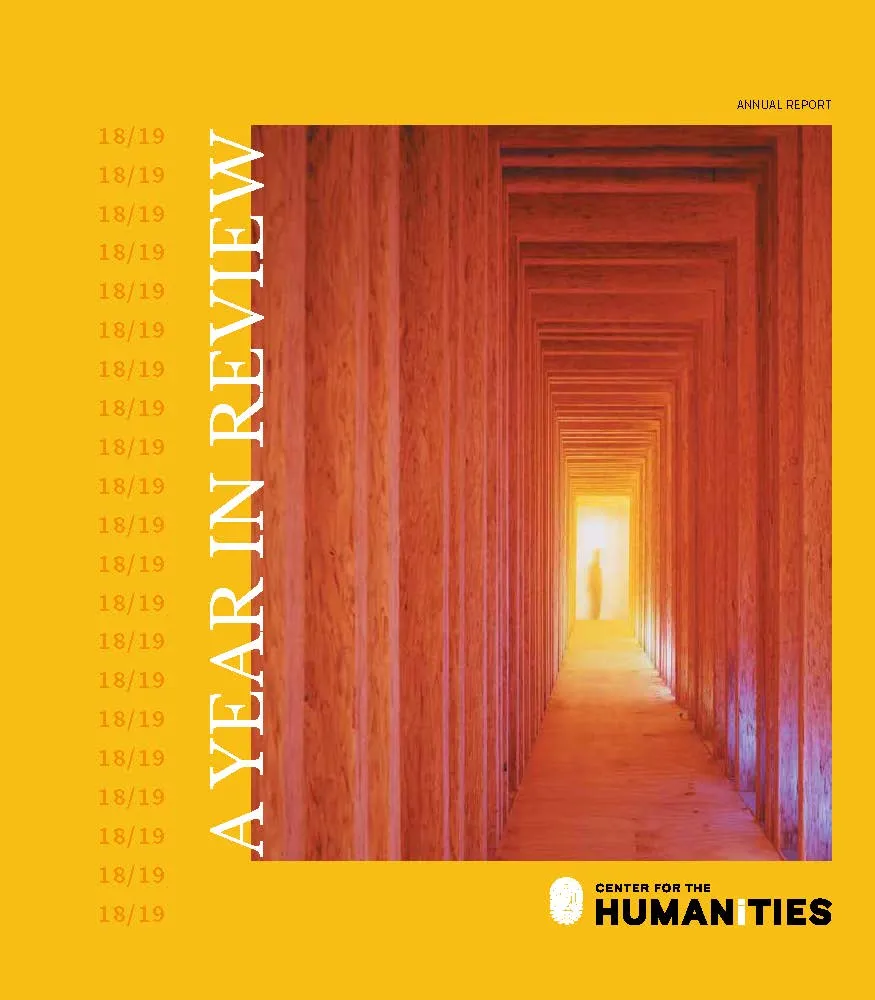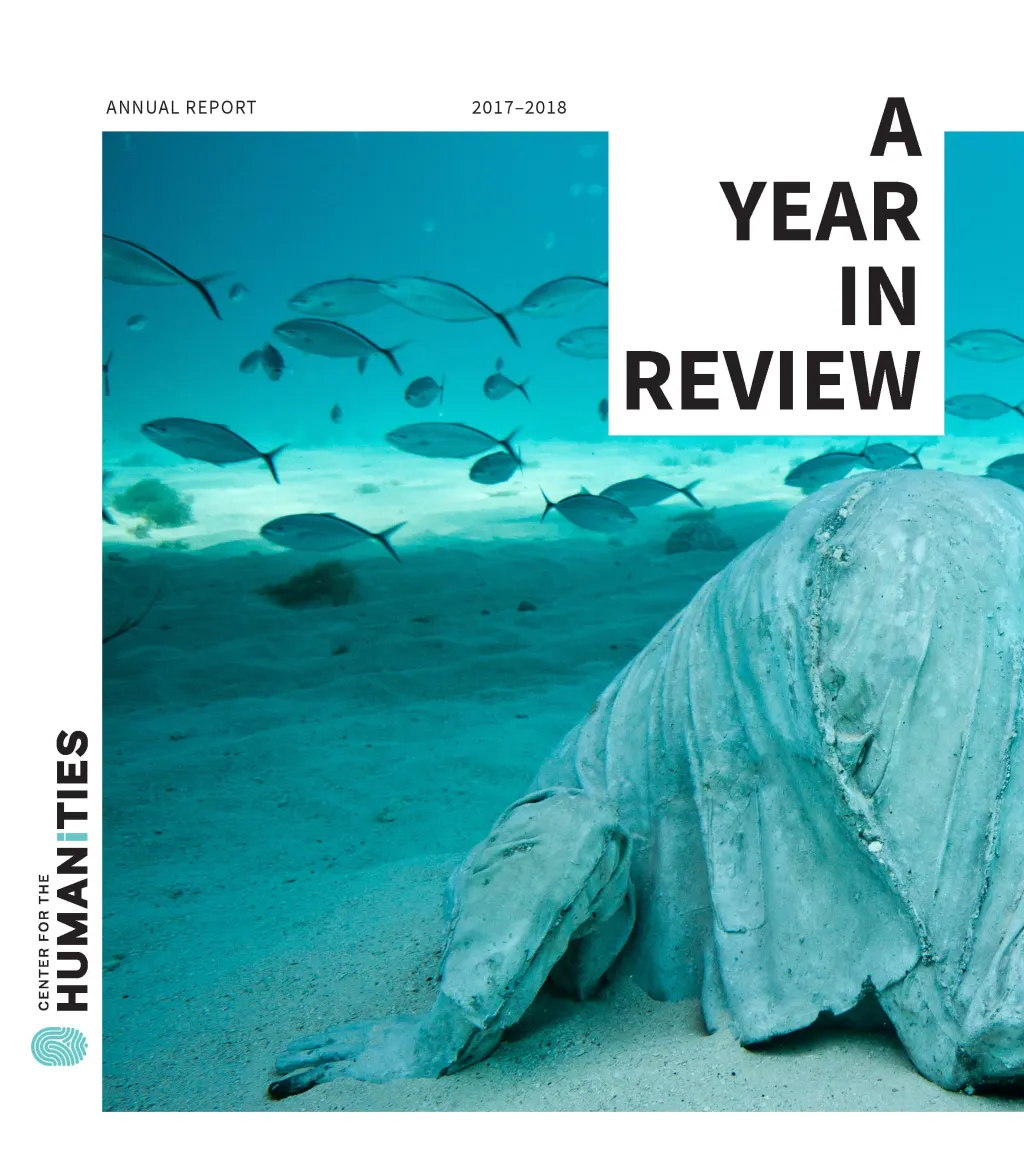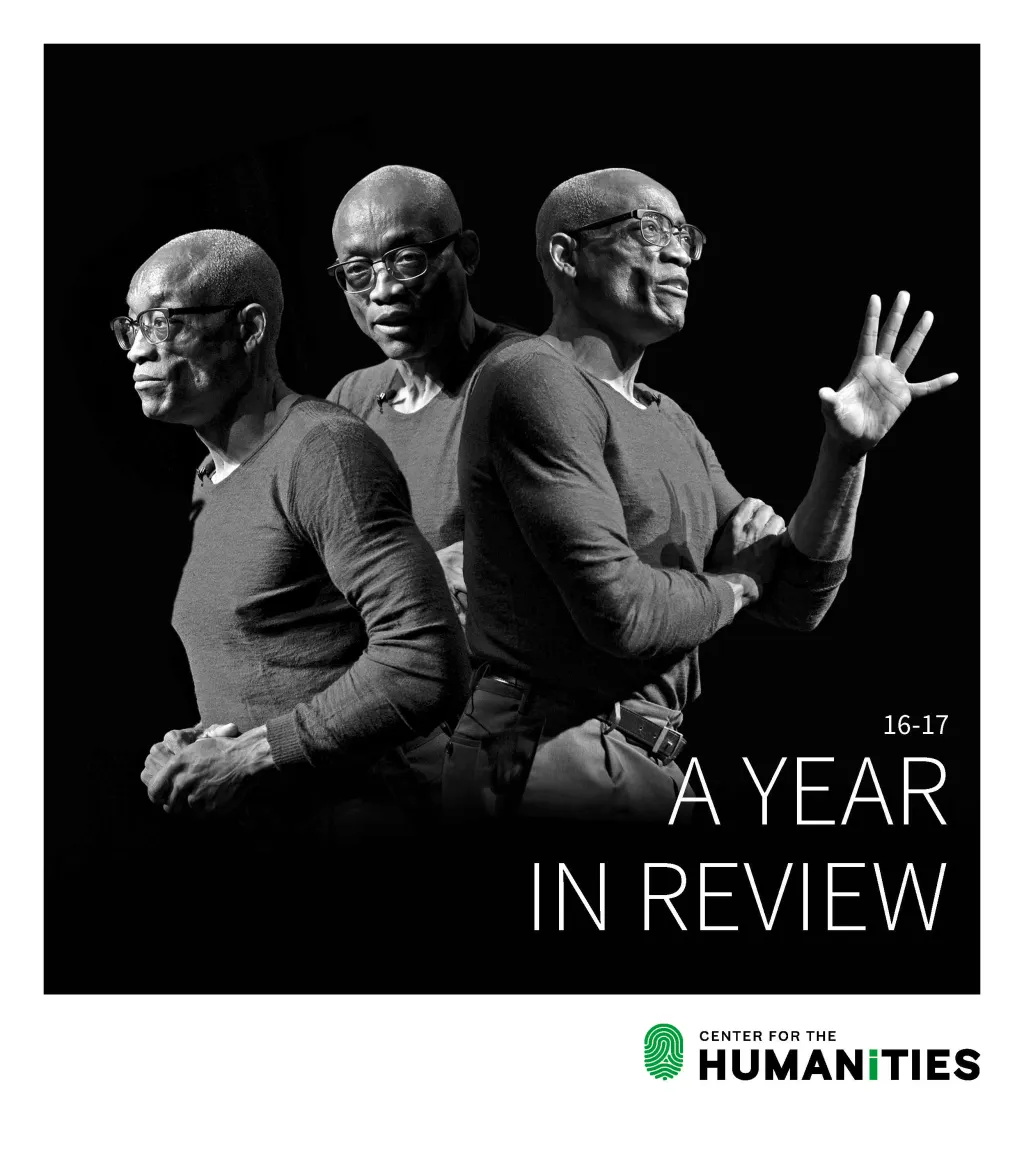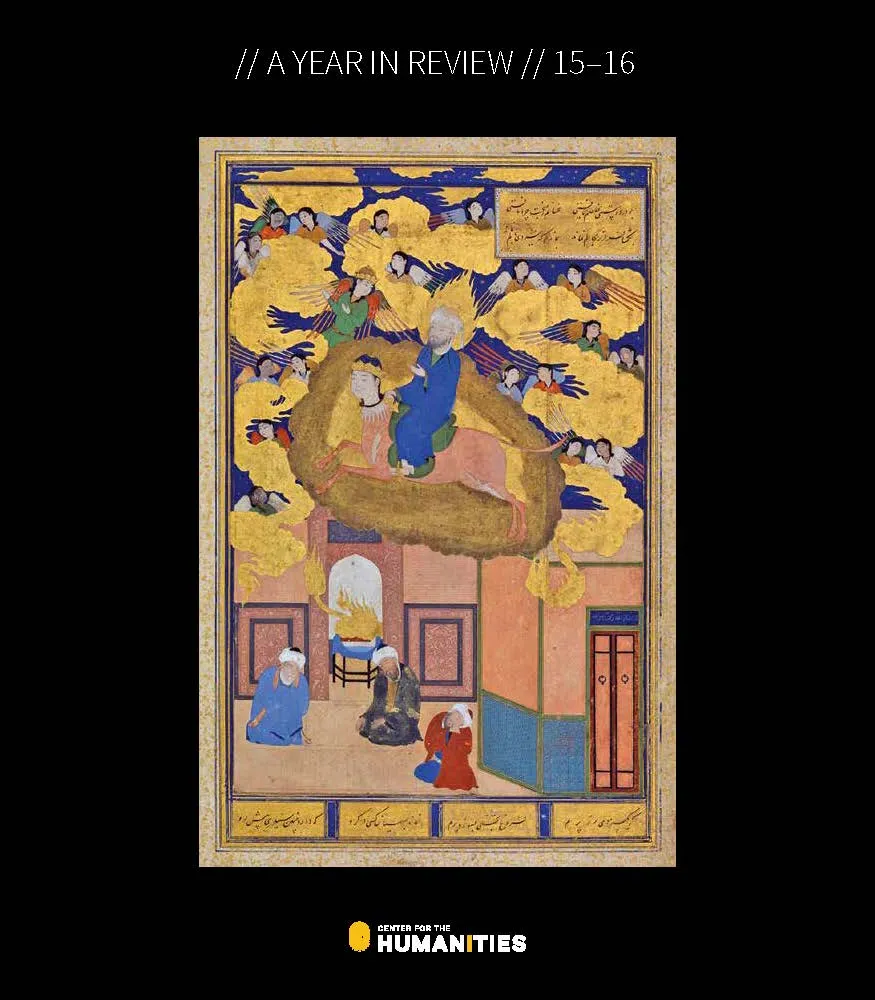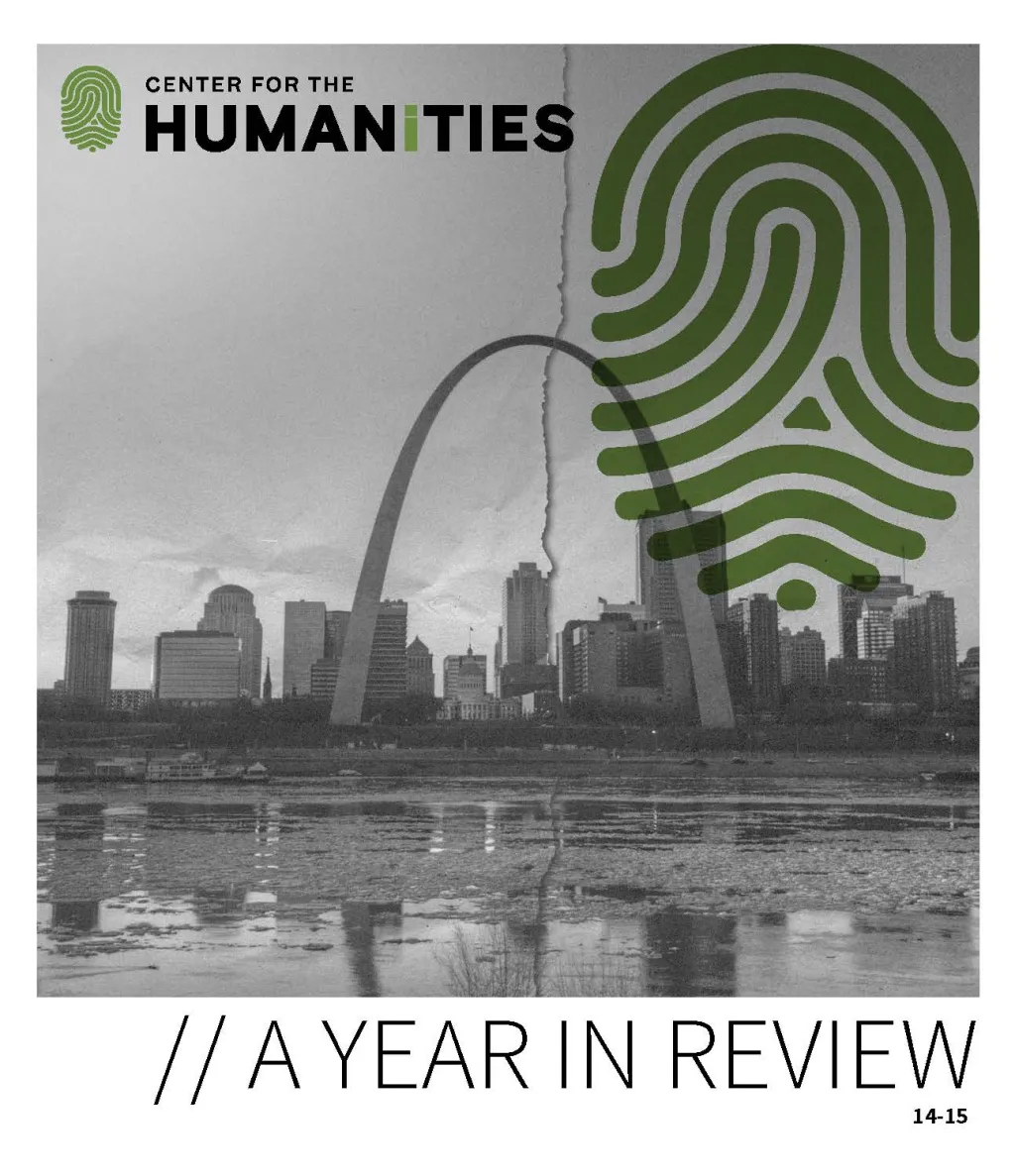Publications & Recordings
Recordings
Humanities Career Spotlight: Dr. Kenly Brown, Spencer Foundation
October 23, 2025
Kenly Brown, PhD, shares her experience as a program officer for a private foundation — an important role in the broader world of the humanities. Learn more about how her humanities degree and her time at WashU helped prepare her for this exciting career.
Brown is the first guest in the 2025-26 RDE-funded series Humanities Career Spotlight. Intended as informational opportunities for graduate students to think broadly about career possibilities for humanists, each Humanities Career Spotlight visitor will hail from a different part of the broader humanities ecosystem.
Cultivating Dynamic Academic Environments: A Blueprint for Collaboration, Innovation and Leadership
April 7, 2025
In this time of flux and dramatic cultural shifts around higher education, we must take the time to cultivate responsive academic environments. This full-day event was aimed at generating fresh approaches around our topics of collaboration, innovation and leadership in academic settings. A series of panels, hosted by the Center for the Humanities and the Office of Public Scholarship, featured visiting speakers as well as WashU faculty members who are dynamic examples at this increasingly important nexus. Participants and audience members were invited to discuss urgent topics concerning the support of innovative and collaborative academic work in the humanities and beyond.
Invited guests included:
- Jeffrey Jerome Cohen, Dean of Humanities, College of Liberal Arts and Sciences Foundation Professor of English (Arizona State University)
- Lindy Elkins-Tanton, Foundation and Regents Professor, School of Earth and Space Exploration (Arizona State University)
- Kathleen Fitzpatrick, Interim Associate Dean for Research and Graduate Studies and Professor of English (Michigan State University)
- Kristin Hass, Professor, Department of American Culture and Faculty Coordinator, Humanities Collaboratory (University of Michigan)
- Chris Long, Provost and Senior Vice President and Professor of Philosophy (University of Oregon)
- Patricia Parker, Director, Institute for the Arts and Humanities, the Ruel W. Tyson, Jr. Distinguished Professor of Humanities, and Professor in the Department of Communication (University of North Carolina at Chapel Hill)
- Jason Rhody, Senior Director of Engagement Strategy (Modern Language Association)
There are five videos in this playlist. Individual panel discussion videos are available at this link.
2025 Faculty Book Celebration: Keynote Lecture & Faculty Presentations
Cannibal Capitalism: The View from Trump’s America
February 25, 2025
Nancy Fraser, the Henry and Louise A. Loeb Professor of Philosophy and Politics at the New School for Social Research and author of Cannibal Capitalism: How our System is Devouring Democracy, Care, and the Planet – and What We Can Do About It
If critical theory is “the self-clarification of the struggles and wishes of the age,” then what form should it take today, in the age of Trump? How should critique be envisioned in a period of general crisis, when multiple system dysfunctions (social, economic, ecological and political) spark multiple axes and sites of social struggle — some potentially emancipatory, others decidedly not? In this lecture, Nancy Fraser traces the roots of the crisis to the constitutive dynamics of our society, which she calls “cannibal capitalism.” Integrating Marxian insights with those of feminism, anti-racism/anti-imperialism and ecological and democratic theory, she expounds that system’s institutional structure, crisis tendencies and grammars of struggle. She also addresses the burning question: How, in the age of Trump, might participants in those struggles coalesce in a counterhegemonic bloc with the heft and vision to effect an emancipatory transformation of society?
PLUS: Brief presentations on two new projects by their authors: Raven Maragh-Lloyd, assistant professor of African and African American studies and film and media studies (Black Networked Resistance: Strategic Rearticulations in the Digital Age, 2024) and Peter Kastor, the Samuel K. Eddy Endowed Professor, Department of History (Creating a Federal Government, launched 2024)
2025 Faculty Book Celebration: Panel Discussion
Are We Toast? Humanities Under Capitalism
February 26, 2025
2025 Faculty Book Celebration keynote speaker Nancy Fraser, the Henry and Louise A. Loeb Professor of Philosophy and Politics at the New School for Social Research (author of “Cannibal Capitalism: How our System is Devouring Democracy, Care, and the Planet – and What We Can Do About It”) joined a panel of WashU faculty:
- Rachel Brown, Assistant Professor of Women, Gender and Sexuality Studies
- Ila Sheren, Associate Professor of Art History and Archaeology
- Anca Parvulescu, the Liselotte Dieckmann Professor of Comparative Literature
Moderated by Talia Dan-Cohen, Associate Professor of Sociocultural Anthropology and Associate Director of the Center for the Humanities
Where to Start? A Public Humanities Primer
Roundtable discussion
February 20, 2025
A roundtable discussion featuring scholar practitioners and members of key foundations supporting humanities research and collaboration. The conversation touched on the value and importance of research collaborations with communities and organizations outside of the university, how — and why — to pursue meaningful collaborative projects as a part of doctoral training, and how to articulate the value of humanities skills and research to those outside of higher education.
Speakers
- Desiree Barron-Callaci is a senior program officer in U.S. Programs for the American Council of Learned Societies (ACLS).
- MJ Rymsza-Pawlowska is an interdisciplinary cultural historian of the 19th- and 20th-century United States and an associate professor of history and public history at American University.
- Janine Utell is associate director of academic program services and professional development at the Modern Language Association.
This roundtable was part of a spring 2025 RDE workshop for WashU graduate students in the humanities and humanistic social sciences.
2024 Holocaust Memorial Lecture
The Evolution of Mass Murder: Forensic Archaeological Perspectives on Mass Violence at the Treblinka Labor and Extermination Camps
November 12, 2024
Caroline Sturdy Colls, Professor of Holocaust Archaeology and Genocide Investigation and the Director of the Center of Archaeology at the University of Huddersfield (UK)
Drawing upon recent historical and archaeological research, this lecture discusses the evolution of mass violence and murder at Treblinka before, during and after Operation Reinhard. It considers how geography and (deceptive) narratives surrounding the labor camp were used to facilitate mass killings between 1941 and 1944 and explores the relationships that existed between the camps and killing sites that existed within the space. As well as considering the actions of the perpetrators and experiences of the victims, Caroline Sturdy Colls discusses the material traces of extermination such as newly discovered mass graves and punishment sites. Ultimately, she shows that the systematic murder of Jews at Treblinka, and their burial within the campscape, began long before the notorious extermination camp was constructed.
The Future of Reproductive Justice with Loretta Ross
September 7, 2024
During the symposium “Reflecting on Reproductive Justice,” co-conveners Seanna Leath (Psychological & Brain Sciences) and Zakiya Luna (Sociology), both at Washington University in St. Louis, discuss the future of the reproductive justice movement with Loretta Ross, an activist, public intellectual, scholar, the 2022 recipient of the MacArthur Foundation “Genius” award and an associate professor of the study of women and gender at Smith College.
Roundtable: Writing as Advocacy
March 28, 2024
This roundtable gathered a diverse group of humanists who employ writing as a tool for advocacy of various forms. Drawing on their personal experiences, speakers addressed questions such as:
How can creative practices renew us as writers and empower us to ask bolder questions in our scholarship?
How can we use research and writing skills to identify and advocate for the university we believe in?
How do we connect writing and research with our values?
How do we create communities of practice stemming from our scholarship?
How might our scholarship translate into meaningful change?
How do we write ourselves into thriving as humanities practitioners?
How can we develop practices that connect our research with where those topics live in the world today?
Speakers
- Margaret (Maggie) Nettesheim Hoffmann is the associate director of career diversity for the Humanities Without Walls (HWW) consortium.
- Michelle Daniel Jones is a sixth-year doctoral student in the American studies program at New York University.
- Ashley Cheyemi McNeil, PhD, is a public scholar and humanist with 10+ years experience working with learners, scholars and community partners to share stories and research.
- Katja Perat, PhD, is a Slovenian novelist, essayist and poet, and an assistant professor of writing at University of Alaska–Anchorage.
- Roopika Risam, PhD, is associate professor of film and media studies and of comparative literature at Dartmouth College.
- Katina Rogers, PhD, is an independent scholar, editor and educational consultant, working with institutions to design and implement structures that are creative, sustainable and equitable.
This roundtable was part of a spring 2024 RDE workshop for WashU graduate students in the humanities and humanistic social sciences.
2024 Faculty Book Celebration: Keynote Lecture & Faculty Presentations
In Defense of Tackiness: The Queer Environmental Politics of Glitter
February 28, 2024
Nicole Seymour, professor of English, California State University, Fullerton, and author, Glitter, an environmental-cultural history of a substance often dismissed as frivolous
In this talk, Nicole Seymour will offer an environmental-cultural history of glitter, contextualizing and challenging the recent backlash against this substance, including the sweeping ban implemented by the European Union in 2023. Focusing on the tackiness of glitter — its physical stickiness as well as its metaphorical association with the vulgar — Seymour will chart how glitter has served as a rallying symbol for the marginalized: the working class, people of color and queer communities.
PLUS: Brief presentations on two new books by their authors: Ila Sheren, associate professor, Department of Art History and Archaeology (Border Ecology: Art and Environmental Crisis at the Margins) and Hayrettin Yücesoy, associate professor of Arabic and Islamic studies, Department of Jewish, Islamic, and Middle Eastern Studies (Disenchanting the Caliphate: The Secular Discipline of Power in Abbasid Political Thought)
Rethinking Tenure and Promotion Assessment in the Humanities: A Blueprint for Transformation and Innovation
November 6, 2023
Co-organized by the Center for the Humanities and the Program in Public Scholarship, this event was designed to help humanities faculty and administrators think through how to move beyond traditional requirements for tenure dossiers in the humanities (e.g., monograph and articles) to encompass newer ways of doing humanities research — public humanities, digital humanities, creative practice. How do we enact systemic change to open up traditional ways of evaluating humanities research to allow scholars to produce this exciting new work while moving through the tenure and promotion processes?
Invited guests included:
- Kal Alston, Professor in Cultural Foundations of Education and Women’s and Gender Studies, Syracuse University; Associate Dean for Academic Programs in the School of Education; Chair, Imagining America National Advisory Board; and President-Elect, Philosophy of Education Society
- Ulrich Baer, Director, Center for the Humanities; University Professor, Departments of German and Comparative Literature, NYU
- Antoinette Burton, Professor of History and Swanlund Endowed Chair; Director, Humanities Research Institute, University of Illinois Urbana-Champaign
- Alenda Y. Chang, Associate Professor in Film and Media Studies, UC Santa Barbara; Co-founder, Wireframe Digital Media Studio
- Joy Connolly, President, American Council of Learned Societies (ACLS)
- Heather Hewett, Program Officer for Higher Education Initiatives, ACLS
- Paula Krebs, Executive Director, Modern Language Association
There are five videos in this playlist. Individual panel discussion videos are available at this link.
2023 Faculty Book Celebration: Panel Discussion
Humanities and the City
February 23, 2023
2023 Faculty Book Celebration keynote speaker Davarian Baldwin, the Paul E. Raether Distinguished Professor of American Studies, Trinity College, joined a panel of Washington University faculty:
- Shanti Parikh, Chair of African and African-American Studies and Professor of Sociocultural Anthropology and of African and African-American Studies
- Samuel Shearer, Assistant Professor of African and African-American Studies
- Geoff Ward, Professor of African and African-American Studies
Moderated by Laura Perry, Assistant Director for Research and Public Engagement, Center for the Humanities.
2023 Faculty Book Celebration: Keynote Lecture & Faculty Presentations
What Good Is Higher Education for Our Cities?
February 23, 2023
In today’s dominant knowledge economy, universities have become big business and our cities their company towns. But there are both benefits and costs to those who live in the shadow of these ivory towers. With St. Louis as our backdrop, this talk ponders: What good is higher education for our cities?
PLUS: Brief presentations on two new books by their authors: Miguel Valerio, assistant professor, Department of Romance Languages and Literatures; and Lynne Tatlock, the Hortense and Tobias Lewin Distinguished Professor in the Humanities and chair, Department of Germanic Languages and Literatures, and director, Program in Comparative Literature.
2022 James E. McLeod Memorial Lecture on Higher Education
Do Colleges and Universities Bear Responsibility for K-12 Public Education?
October 24, 2022
Mary Schmidt Campbell, 10th president of Spelman College (2015-22)
Many of our nation’s great colleges and universities reside in large urban centers where public school education has been under-resourced, and students have been dramatically underserved. What responsibility, if any, should elite, well-resourced institutions of higher education assume for the public-school outcomes of the communities in which they reside?
Banned Comic Books
September 22, 2022
Who’s afraid of comic books? Book bans across Missouri and the U.S. have often targeted graphic novels and comic books, especially those that depict issues of gender, sexuality and race. New Missouri laws will punish educators and school librarians who provide restricted materials to students with fines and jail time. This event considers banned comic books from the perspectives of the artists who create them and the advocates who defend them.
Panel lineup includes:
- Jerry Craft, New York Times bestselling author and illustrator of the graphic novels New Kid and Class Act. New Kid is the only book in history to win the John Newbery Medal for the most outstanding contribution to children’s literature (2020), the Kirkus Prize for Young Readers’ Literature (2019), and the Coretta Scott King Author Award for the most outstanding work by an African American writer (2020).
- Molly Carney, ACLU MO. Carney joined the ACLU of Missouri as a Staff Attorney in 2020. As a member of the legal team, she engages in all aspects of strategic litigation efforts to protect civil rights and liberties, including her current work on litigation and advocacy against book bans across Missouri.
- Phoebe Gloeckner, graphic novelist. Gloeckner’s book The Diary of a Teenage Girl (2002) was praised as “one of the most brutally honest, shocking, tender, beautiful portrayals of growing up female in America.”
Discussion moderated by Rebecca Wanzo, professor and chair of the Department of Women, Gender and Sexuality Studies, Washington University. Wanzo is author of The Content of Our Caricature: African American Comic Art and Political Belonging, winner of the 2021 Eisner Award for Best Academic/Scholarly Work and the 2021 Charles Hatfield Book Prize from the Comics Studies Society.
2022 Faculty Book Celebration: Panel Discussion
Reflections on Craft: Connecting Creative and Scholarly Practice
March 3, 2022
2022 Faculty Book Celebration keynote speaker Charles Johnson, Professor Emeritus, University of Washington, joined a panel of Washington University faculty:
• Rebecca Copeland, Professor of Japanese Language and Literature, Department of East Asian Languages and Cultures;
• Joanna Dee Das, Assistant Professor of Dance, Performing Arts Department;
• Gerald Early, the Merle Kling Professor of Modern Letters, Departments of English and of African and African-American Studies; and
• Shreyas R. Krishnan, Assistant Professor in Illustration, Sam Fox School of Design and Visual Arts
Moderated by Ignacio Infante, Associate Professor of Comparative Literature and Spanish; and Associate Director, Center for the Humanities.
2022 Faculty Book Celebration: Lectures
Let Your Talent Be Your Guide
March 3, 2022
In this presentation, 2022 Faculty Book Celebration keynote speaker Charles Johnson describes the journey that took him from being a cartoonist and journalist in his late teens and early twenties to becoming a novelist, philosopher, literary scholar, essayist, short story and screen writer, and a college professor. The spirit of this journey is captured in a statement by John Muir: “When we try to pick out anything by itself, we find it hitched to everything else in the universe.”
PLUS: Brief lectures on two new books by their authors: Diana Montaño, assistant professor, Department of History; and Julia Walker, associate professor, Department of English and associate professor and chair, Performing Arts Department.
2021 James E. McLeod Memorial Lecture on Higher Education
Remembering James McLeod and the Rise of Black Studies at Washington University
September 30, 2021
Gerald Early, the Merle Kling Professor of Modern Letters and former chair of the Department of African and African American Studies at Washington University in St. Louis, gives the 2021 James E. McLeod Memorial Lecture on Higher Education.
2021 Holocaust Memorial Lecture
Jewish Physicians and Their Patients: Rescue Strategies in Nazi Occupied Poland
Wednesday, November 10, 2021
Natalia Aleksiun, Professor of Modern Jewish History, Touro College / Incoming Harry Rich Professor of Holocaust Studies at the University of Florida-Gainesville
The relationships between Jewish physicians, non-Jewish medical professionals and patients offer a window into rescue efforts in Nazi-occupied Poland. Jewish testimonies, diaries, memoirs and witness statements in postwar trials tell a story of how communities came together to organize hiding places and aid for Jewish doctors who were threatened by violence and murder. In the lecture, Prof. Aleksiun will discuss how pre-existing professional relationships, a sense of gratitude for medical services rendered in the past and an ongoing need for Jewish physicians’ expertise laid the foundation for a network of support that allowed Jewish physicians to continue to work in the face of the Holocaust and — in the case of some — survive.
A Year in Review annual report
Flip through our current issue!
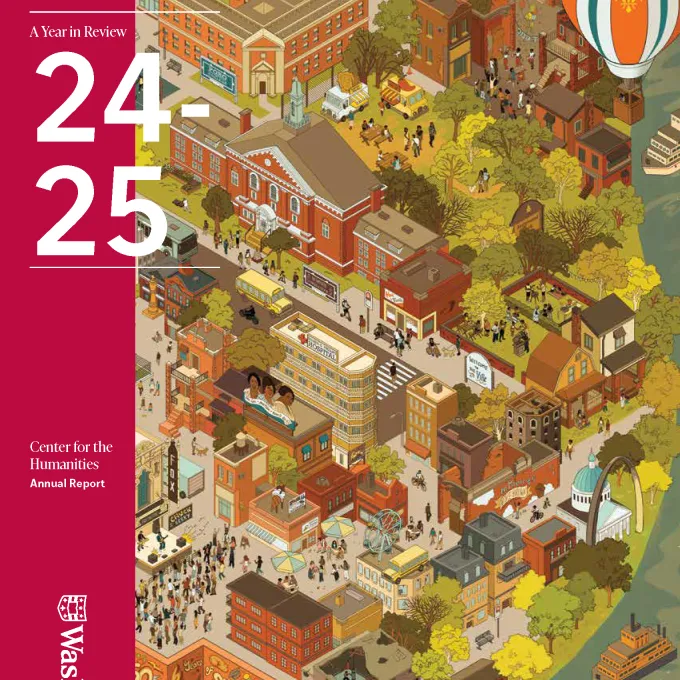
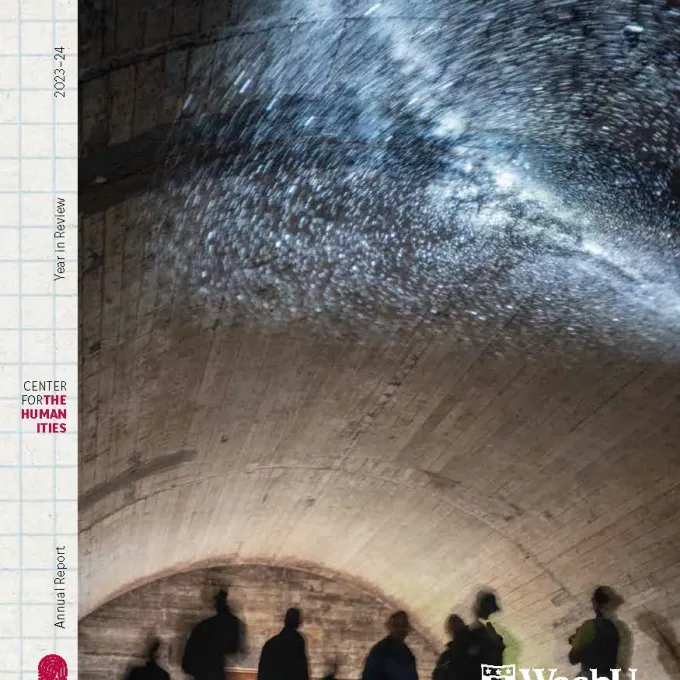
2023-24
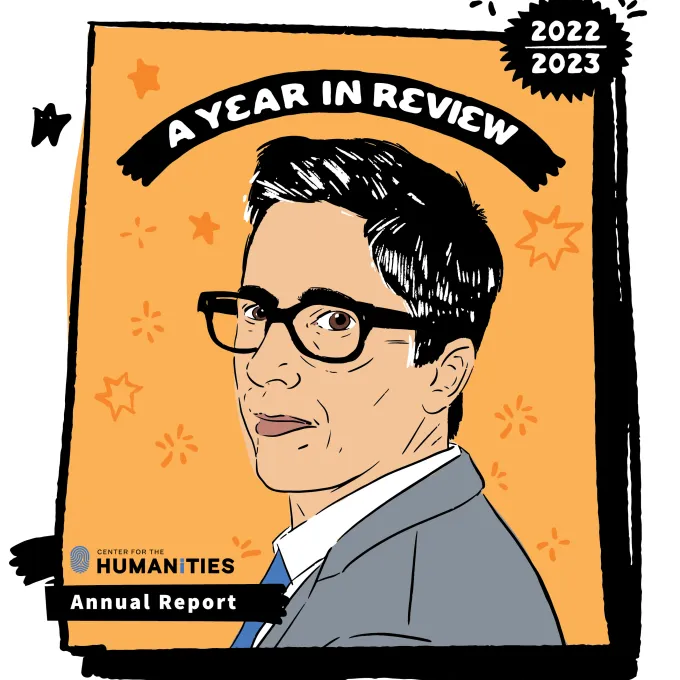
2022–23
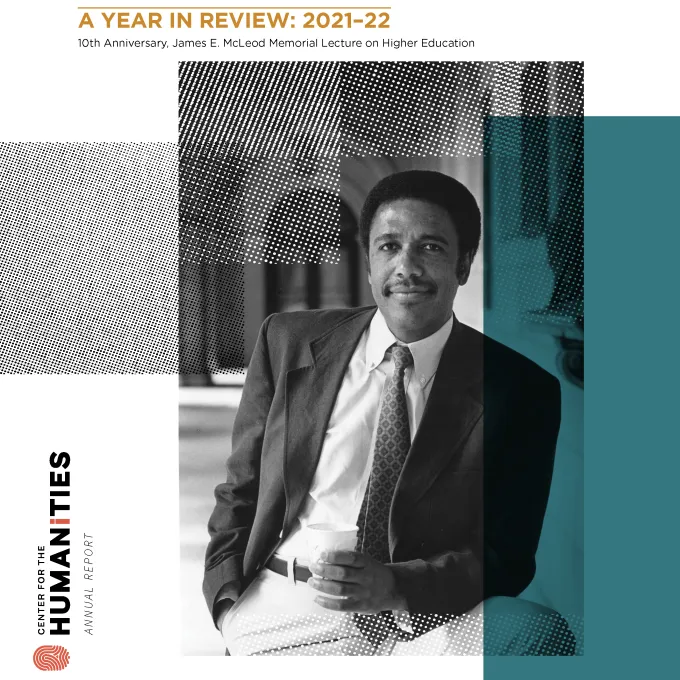
2021-22

2020–21
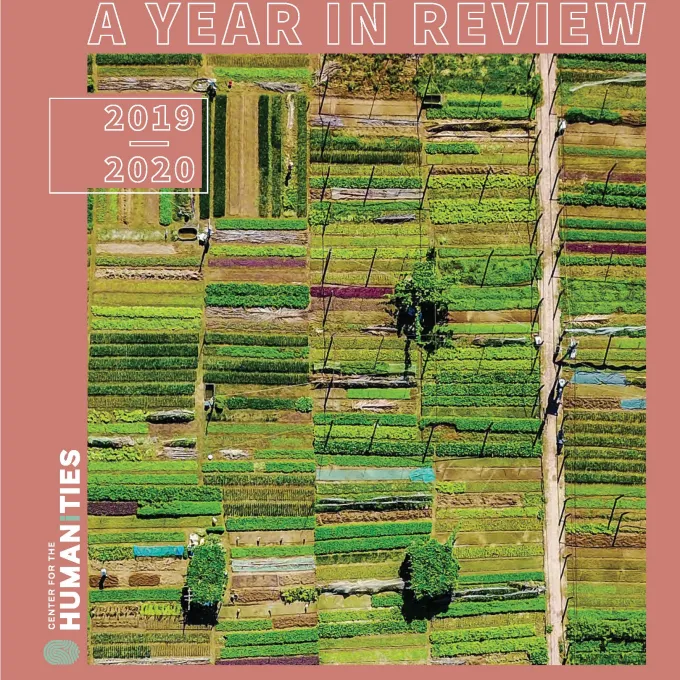
2019–20
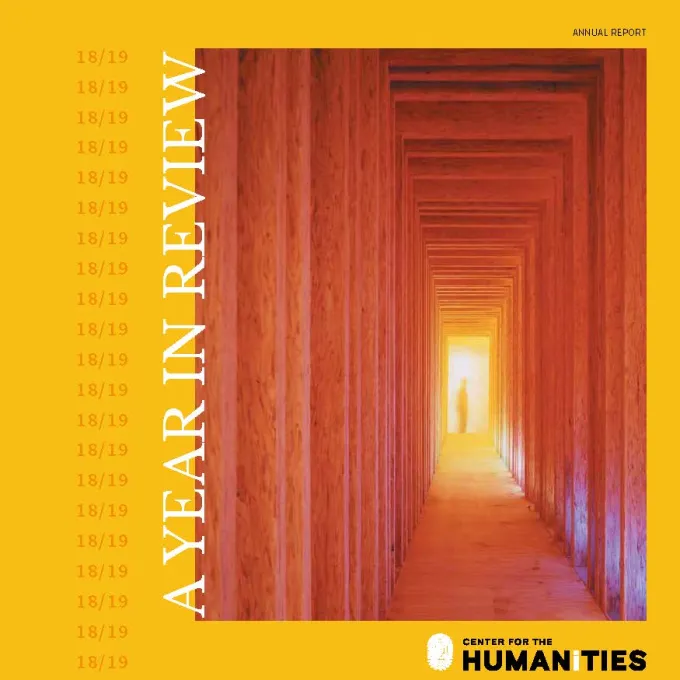
2018–19
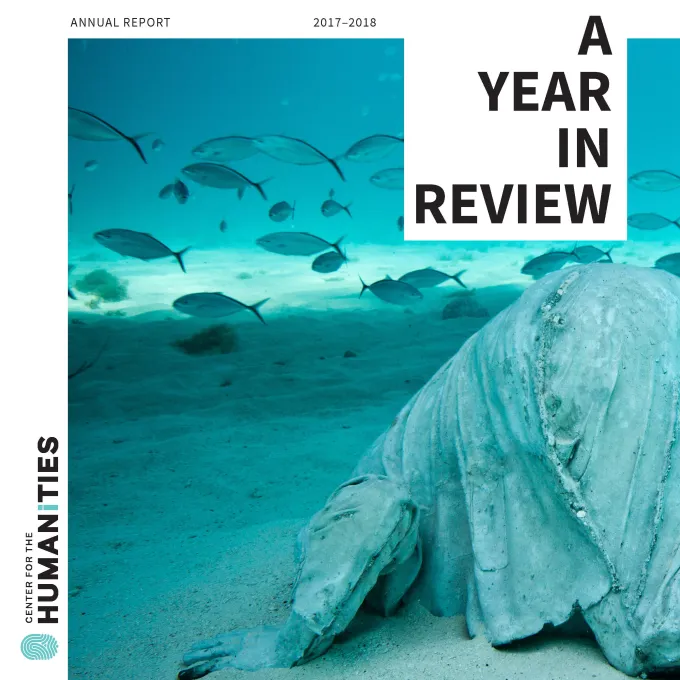
2017–18
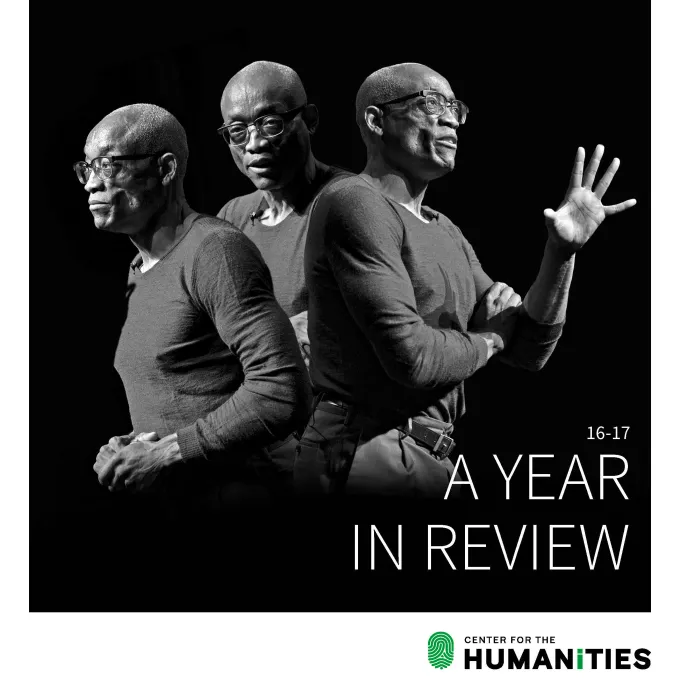
2016–17
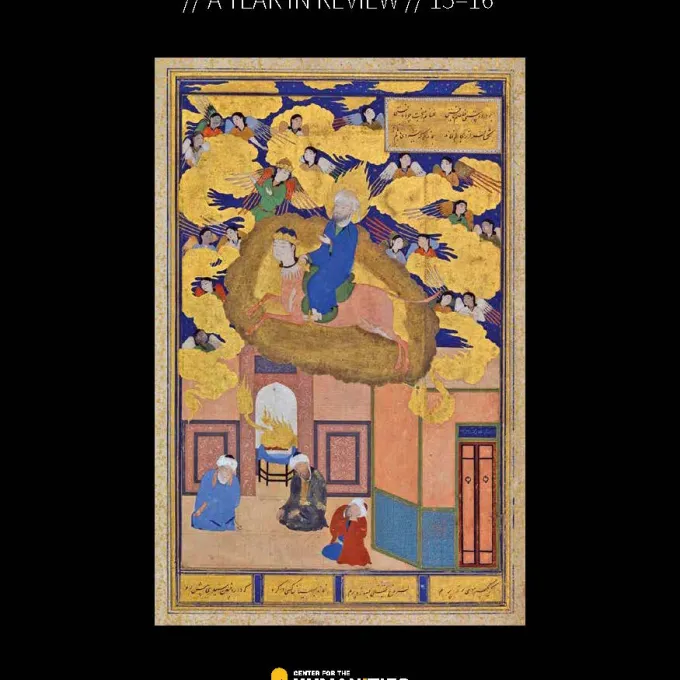
2015–16
